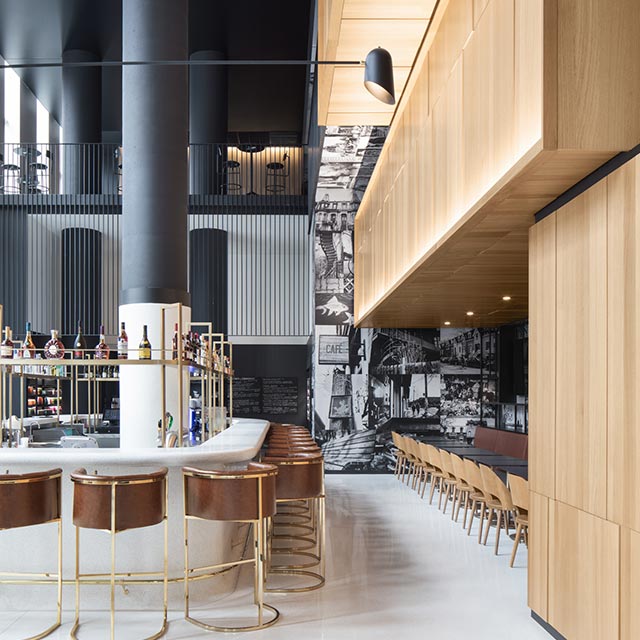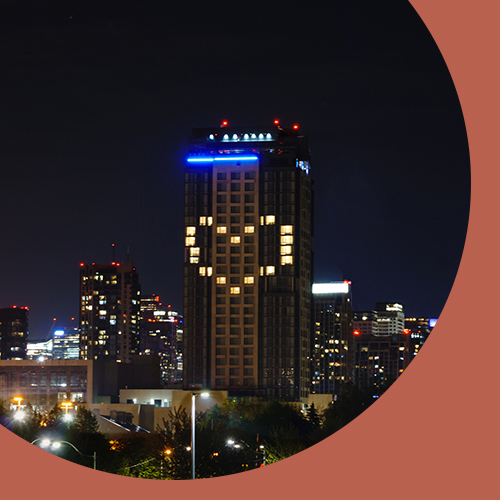5 sustainable practices to stand out in the hotel industry
Sustainable tourism is not just a temporary trend, it has become a real priority that needs to be addressed by everyone, from hotel managers to guests.
By 2035, global greenhouse gas emissions are expected to increase by more than 130%. The tourism sector being very energy intensive, it is important to act quickly. Many hotels have decided to go green to stand out from the crowd. Indeed, 66% of travelers are willing to pay more to stay in an eco-friendly hotel.

Eliminate the use of plastic
There are many sustainable practices to implement in a hotel, but eliminating single-use plastic remains one of the most important ones. An eco-friendly hotel should no longer offer single-use plastic bags and plastic water bottles. They can offer several alternatives to their guests such as recyclable paper bags and have water fountains at their disposal.
Minimize resource consumption
Sustainable tourism also means minimizing the consumption and the waste of food, water and energy resources.
Regarding the reduction of food waste, it is preferable to first measure the food waste of your hotel before reviewing the management of your inventory and your deliveries. If you notice stock accumulation, it is possible to recycle food, transform products and even redistribute and donate food to associations. Do you not know what to do with your food waste? Some products can be used to produce your own natural compost. Depending on the season, you can also grow fresh organic vegetables and herbs and use them to invent and/or add to your signature dishes with your own vegetable garden.
In the hotel industry, water consumption is considerable. On average, a guest consumes close to 300 liters of water a night, so you should first check that there are no water leaks in your hotel. Moreover, you should raise your guests’ awareness on conscious water usage. For example, you can leave informative posters in their rooms highlighting the amount of water needed to fill a bath versus the amount of water needed for a 10-minute shower. Moreover, you can inform them of the amount of water needed to wash linens such as sheets and towels.
Electricity consumption should also be closely monitored, and there are several alternatives available to you if you wish to reduce your electricity consumption. Using low energy light bulbs, having the lights automatically turn off when the client leaves a room or lowering the heating automatically according to the temperature of the room could be solutions to consider.
Prioritize digital over paper
Equipping yourself with an excellent PMS cloud will allow you to stop printing your reservation list or your room report. Moreover, your hotel management software automatically sends confirmation and reminder emails, so take advantage of this to encourage your customers not to print their reservation documents and to prefer online check-in or check-out at the kiosks. In addition to doing a good deed for the environment, you save time and increase your daily performance!
Promote local and ethical purchasing
Promoting local businesses and farmers in your region will allow you to distinguish yourself with your clientele who are foodies and enjoy cultural discoveries. Using and purchasing local products in an ethical manner also means preferring short-distance purchasing and seasonal products which often translates to better quality.
Equipping yourself to promote sustainable tourism
In addition to all the eco-friendly practices mentioned above, you should equip your hotel in a way to promote sustainable tourism as much as possible. Have you ever thought of installing solar panels on your hotel’s roof to use your own renewable energy? Do you use low energy and connected lights? Do you offer products such as shampoos and soaps in dispensers rather than individual single-use containers? Do you prefer the use of biodegradable and non-polluting household products? All these sustainable practices could help you stand out from the crowd.
Nowadays, travelers are increasingly more sensitive to the eco-friendly and sustainable aspect of a hotel. By definition, an eco-friendly hotel is a hotel that does everything in their power to minimize their environmental impact by transforming its services. This sustainable approach trivially begins with raising the staff and clients’ awareness.
Many hotels are undertaking sustainable practices to reduce their ecological footprint combining conviviality and new technologies. By doing so, they are also reducing their spending. Thus, in addition to being environmentally friendly, you will make a good impression on your clientele and stand out from your competitors!
 Log in
Log in


























